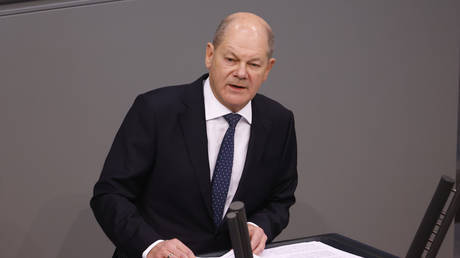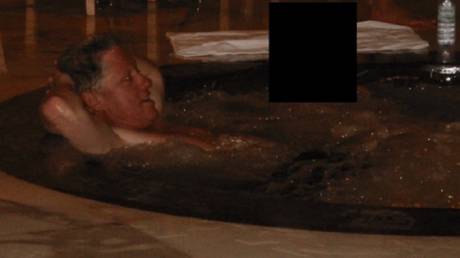
Aiding Kiev is of “existential importance” to Europe, the German chancellor has said
Germany’s economy needs to be modernized in order to be prepared for unexpected crises in the future, Chancellor Olaf Scholz said in his address to parliament on Tuesday. A recent Constitutional Court ruling blocked the government’s plans to divert unused pandemic funds into its Climate and Transformation Fund intended for that purpose.
In his speech, Scholz recalled that the country had faced challenges, including the COVID-19 pandemic, the Ukraine conflict, and rising energy prices.
According to Reuters, Scholz said that “it would be a grave and unforgivable mistake to neglect the modernization of our country in the face of all these acute challenges.”
While Scholz called for the “transformation” of the German economy, he said that the country would continue to provide assistance to Ukraine “as long as it is necessary.” As quoted by the Guardian, he said this support had “existential importance” not only for Germany but for all of Europe, with the chancellor adding that “if Putin won” there would be “even more serious consequences.”
Earlier this month, the German government reportedly agreed to double military aid to Ukraine next year to a total of €8 billion ($8.79 billion).
During his address, Scholz also said that “it is also clear that we must not let up in our support for Ukraine and in overcoming the energy crisis,” according to Reuters.
While Scholz claimed that his government would deal with the budget crisis, the opposition Christian Democrats (CDU), whose legal action sparked the Constitutional Court ruling, greeted his words with laughter.
According to Vice Chancellor Robert Habeck, the legal decision could have “massive implications” for the country’s transformation into a cleaner and more technologically advanced economy, Bloomberg reported last week.
A few days ago, Bavarian premier Markus Soeder, who also leads the state’s largest party and CDU ally, the Christian Social Union (CSU), said Scholz’s government had “gone bankrupt” and criticized its strategy of lifting energy price controls by the end of the year. The controls were designed to protect households and businesses from soaring gas and electricity costs caused by dwindling energy imports from Russia amid EU sanctions.




